Get the developers' perspective on all things WWDC and Apple Intelligence in this exclusive interview with MacPaw founder — and owner of the best ever Apple museum — Oleksandr Kosovan.
While most of us watched the stream of the WWDC Keynote in our homes and offices, MacPaw founder Oleksandr Kosovan was right there at Apple Park. A long-time WWDC attendee as well as an app developer since the earliest days of the App Store, Oleksandr tells us all about what was new behind the scenes — as well as what Apple's announcements mean for developers.
Just back from Cupertino, he joins host William Gallagher to discuss Apple Intelligence, beta software, and what this annual WWDC event means to the more than 200 developers he works with in Setapp.
Alongside everything that's new, Oleksandr Kosovan is also a collector and his MacPaw museum has literally every Apple device ever made — except one.
Find out what he's missing, and get the developer's view of WWDC 2024 in this special interview edition of the AppleInsider Podcast.
Contact your host
- @williamgallagher_ on Threads
- @WGallagher on Twitter
- William's 58keys on YouTube
- William Gallagher on email
How to support the AppleInsider Podcast
Support the show on Patreon or Apple Podcasts to get ad-free episodes plus bonus AppleInsider+ feature every week, access to our private Discord channel, and early release of the show! We would also appreciate a 5-star rating and review in Apple Podcasts.
Links from the AppleInsider Podcast
More AppleInsider podcasts
Tune in to our HomeKit Insider podcast covering the latest news, products, apps and everything HomeKit related. Subscribe in Apple Podcasts, Overcast, or just search for HomeKit Insider wherever you get your podcasts.
Podcast artwork from Basic Apple Guy. Download the free wallpaper pack here.
Those interested in sponsoring the show can reach out to us at: advertising@appleinsider.com.
Subscribe to AppleInsider on:
Keep up with everything Apple in the weekly AppleInsider Podcast. Just say, "Hey, Siri," to your HomePod mini and ask for these podcasts, and our latest HomeKit Insider episode too. If you want an ad-free main AppleInsider Podcast experience, you can support the AppleInsider podcast by subscribing for $5 per month through Apple's Podcasts app, or via Patreon if you prefer any other podcast player.
Interview transcription
WILLIAM GALLAGHER: Hello, welcome to a special extra Apple Insider episode.
I'm William Gallagher and if you've already heard yesterday's regular edition, you'll know that Wes Hilliard and I have been trying to find a developer to give just the right perspective on WWDC and you'll know that we found exactly the right one to ask as well.
It's Oleksandr Kosovan and he's the founder of MacPaw which has been an Apple Insider sponsor before and MacPaw, it's done CleanMyMac, it's Setapp, it's done CleanMyiPhone, all three things I use myself and that would be enough.
That's three major apps this man is responsible for and MacPaw has been developing Apple apps since around 2008.
And he was at Apple Park this week.
What more reason could you possibly have to talk to him? But there is one because remember, Setapp. Setapp is one subscription service that gets you full use of more than 200 Mac apps.
So Oleksandr has to know about, he has to think about, what the opportunities, what the challenges are that Apple's new APIs, new systems, new features are offering him as a developer but also 200 other developers.
So Oleksandr, just perfect. Thank you very much for coming on to the Apple Insider podcast.
OLEKSANDR KOSOVAN: Hi William, it is a great honor to be here. Thank you for the invitation. I'd love to share all the updates.
WILLIAM: Brilliant. There's so much to ask you but I've got to start with just to set the scene for us actually because you were at Apple Park, the rest of us were all watching the keynote at home.
I presume they showed you the video in the Steve Jobs Theater, is that what it's like?
OLEKSANDR: Yeah, it actually was my first time at Apple Park and before that I was on other WLDCs, like 10 times before maybe. This is the first time in Apple Park so it was really exciting to be there for the first time. So at first they met every developer.
There was a registration and a small party for all of the developers and press so it was like one experience, and the next day there was like this big event in the Apple Park and they also allowed visitors inside the territory, inside the Loop where there was this park and this pond.
Very nice area so I was really impressed.
WILLIAM: I have this image that you walk around Apple Park and there's Tim Cook and Craig Federighi jogging around the whole Loop all the time.
OLEKSANDR: Well I haven't seen Tim Cook there but I've seen Sam Altman which is a big star as well.
WILLIAM: He might come up again as a topic. Before we get to the actual thing of the details of what you've seen, you got to see the same keynote that we did but I think we forget that WWDC is a week-long extravaganza really with at least dozens if not a hundred or more sessions that are really really specific.
In that time I presume Apple gave out far more detail than it could ever have crammed into the keynote. How do you approach that as a developer? How do you decide which sessions to go to and how does it all work for you?
OLEKSANDR: Yeah, so frankly it was not the whole week it was only three days but only the first day was the keynote and the State of the Union presentation and afterwards there were a limited number of labs and one-to-one sessions with Apple developers and engineers.
So it was very limited in time compared to the previous double double DCs that were like before COVID.
And the reason the Apple guys explained us is that right now they have an opportunity to reach so many new potential developers like tens of thousands of them versus when they visit and do directly the WWDC event and have much longer sessions.
So they prefer this format because it's pre-edited it's like filtered content that you already receive like very beautiful wrapping and all of the online videos that you can watch and they prefer this format because for them it's much more concentrated to present to developers.
WILLIAM: Okay, I knew about the online access developers and I've watched a few of them over the last couple of years. So for you, you saw the keynote you had a certain amount of one-to-one contact so you've now got all of this material that you and your team can work through.
How much contact will you have with Apple? Between now and the release of all this software?
OLEKSANDR: So there was an opportunity immediately after the state of the union where you can meet the Apple engineers and there were so many different labs and sessions that you could go to but definitely there was not enough time to speak with all of them.
All you could do is like in a few words describe the new technology and how you might use it and exchange contacts to reach them later when you need them.
WILLIAM: I mean I imagine they're obviously open to being contacted because they want to help they want you to do your thing but they've also they must have been under a lot of time pressure.
Do you find it's easy to get the information you need from Apple after this sort of thing?
OLEKSANDR: Well we'll see because I definitely was not able to get all of the information during the labs because even the Apple engineers were quite frustrated because they still were not aware which information they can already share which is still under NDA.
So they had to check with their managers or policies I don't know so they were not willing to share all of the information so but we will see later.
WILLIAM: Is that unusual for this year or is that just typical do you think of WWDC?
OLEKSANDR: Well, I think it's a bit unusual first of all because the format was different. It's the first time they have this I think, the first time yeah, and they have this format where they returned to one-on-one labs with developers after the COVID so I think the Apple engineers were still like learning what how they can provide maximum value from this new format.
WILLIAM: So it feels you've had a certain amount of information but maybe not as much as in most years for it. Is there anything so far that's come to you that's leapt out as being particularly useful for you at MacPaw as a developer?
OLEKSANDR: Yes, so besides the labs there was an opportunity to go to additional sessions that Apple had in the development center for you could sign up for this event prior to WWDC.
They had limited number of seats there but they would explain additional details all of the new technologies what they added it was something like the extended stand of the union session.
WILLIAM: Okay, interesting! It feels like you've got to think very quickly to decide what to ask them in the limited time that you have.
OLEKSANDR: Yeah personally for me I noted all of the interesting new technologies and I want to learn more after the WWDC week to see the documentation to see additional sessions so I definitely didn't have so much time during that week.
WILLIAM: Well actually let's talk about the notes you made then at the things that leapt out at you. I mean Apple Intelligence is the obvious big one, did you have any thoughts about how you could see that working for you with your apps?
OLEKSANDR: For sure. So personally for me this was one single most important update that Apple released. Frankly we were expecting that Apple would announce something like that so they have been going toward this for a while like with Apple and processors with additional Machine Learning cores, so I was frankly expecting that would they would provide something locally on the machine for large language models or some additional intelligence and this is the most interesting part.
I think that we are really as a technology going through a new industrial revolution which is AI revolution, and I believe Apple is one of the key players in this revolution because even though they might seem very slow adopting these technologies.
But in the same time they are like very fundamental and approaching it like an ecosystem that others could build upon. So they would provide tools for like local Machine Learning models powered by Apple Silicon, which other developers can build into their products and benefit from that.
So I think this is like one of the greatest announcements and that we have been all waiting for.
WILLIAM: There's been this odd sense that Apple has fallen behind the industry in AI but we know that it's been doing neural engines, we know it's had Machine Learning for a decade or more or things. Do you feel that perception is right that Apple is trying to catch up or are we all wrong about it?
OLEKSANDR: Well, I think that's their their company that they are planning their releases years ahead so they were preparing the hardware first then they were preparing like some basic technologies like for example Machine Learning tools in their APIs.
And right now they are releasing something on top of that which is very logical and will be much better integrated into the ecosystem than any other player.
WILLIAM: You said though that you were expecting this, I mean I know we all were. Was there anything in the way Apple has done this that surprised you?
OLEKSANDR: Well, definitely they made a huge accent on the privacy approach. I think being able to use local on the device language models is a single most important thing to allow the high volume adoption of these technologies because not everyone — even frankly me — like to send our private information to open AI, for example to ChatGPT in order to get some answer.
I still consider that they can learn something from it and sometimes it will pop up in some places you wouldn't expect so I think the the privacy approach that Apple introduced is the right way to go for the all of this artificial intelligence thing and so it's a big update I think.
WILLIAM: There is an argument that Apple is actually playing it safe and that therefore its AI features won't be that good won't be that interesting.
You don't sound like you subscribe to that. You think they're doing the right they've taken the right approach?
OLEKSANDR: Well, I think when Apple introducing some new technology or tool or app they usually do it for the very mass market because they have a large large audience and it has to be appealing for this audience.
But if you want to specialize, if you want to make it better, to make more variations of it to have some customizations, users will already know how it works.
And for example, what are the limitations and then extend to some other tools to get better experience.
And this is what's good about Apple, because they could introduce this new AI technologies to such a wide audience and they will start using it, and that they will build expectations from other AI providers as well.
WILLIAM: Interesting. It feels like for us as users that all of this is coming and it's months away. For developers normally by this stage you have at least a mostly complete developer beta of things and in this case all the betas are out but none of them have any Apple Intelligence features in it.
So is it actually quite a frustrating time for you waiting to get your hands on these kind of things?
OLEKSANDR: Yeah, so they do have some limited access to it yes, but most of them will I think they will be available later this year. But this is not the first time they are doing this, so, yeah, it's a bit [like] you are excited to put your hands on these new technologies, but you still have to wait.
But you can play already with some new APIs that aid it and try to integrate them into your products to see how they might work for you.
WILLIAM: Another developer was telling me — I think it was actually last year, not like this just a conversation — that every single year they try to clear the decks for WWDC because they know it's either going to introduce amazing new things they want to add or it's going to break what they've got already and they're going to have to scrabble to fix it.
Is that a typical developer worry at this time?
OLEKSANDR: Well, yeah, usually it is very exciting moment to see the announcements. Sometimes Apple would share some of the apps or technologies, sometimes they would kill some apps like this year they did with calculators for iPad, for example, and they also introduced the password manager which is potentially could replace one 1Password for some basic users — definitely not teams and corporate users.
But still, they are adding some things that are logical to their operating system [and] to the way where they are going and this is sometimes could be a bad news for many developers.
But like for us, for example, the WWDC event usually is a very motivating thing, inspiring thing, because our team could energize and receive this energy for at least half of the year and we know okay what we should adapt what technologies we should adapt in our products.
[We know] what exciting updates there will be in operating systems, what developer tools they added, and this is like really exciting moment for the innovations.
WILLIAM: Every time WWDC comes around, I think of the features that I'm interested in that I'll use and all that, and I can imagine — because I kind of I have developed in the past — I can see that I would just enjoy playing with the new things to see what I could come up with.
But it also seems to me like it's quite a business job here, because I imagine you want to have all the new features available when iOS 18 is publicly released [and] we don't really know when that is.
I mean we know roughly, but you're shooting for a certain target and you have you've got to decide what you want you've got to implement it for. Is it quite a logistical problem for you sorting out this time of year?
OLEKSANDR: Well, usually if you don't change anything your app will still continue to work, but of course you will lose some competitive advantage, and you will lose some opportunity to be featured by Apple on the App Store.
So it's a good motivation to start doing things and think how most effectively you can use all of the new announcements to introduce them into your products as well.
So I think it drives the innovation and it drives the need to change for the developers because, for example, if you have a product that works, that brings you new customers and revenue.
So for some developers it is okay and they can relax and work on some other things, but for example when you have an external factor like the new OS coming and you need to do some changes updates to make it feel fresh and up to date with a new operating system, you still have to spend your time to update the app.
And this is good for users as well, because they could receive a refreshed version of your app with new features and some updates.
WILLIAM: I was thinking there particularly of you and your team. But of course like I said at the start you are working with well over 200 other apps and developers and every developer is going through the same thing.
I presume they're all racing to get the new features in and out. Is that a problem for you or is it just the new version turns out do you have to manage 200 odd developers?
OLEKSANDR: Yes. So of course they are developing their apps on their own so we don't have to push them to make some updates, but we still motivate them to have their apps updated because usually it returns to them through user engagement, so the fresher the app and the better the usage.
And it means in our case, the better the revenue for the vendors, because we are paying based on the active usage of the apps and this is the way they can be successful on our platform.
WILLIAM: Makes sense. You did mention Sherlocking earlier and actually specifically calculators. It seems to me that the one people think of straight away, what I thought of straight away, was PCalc which is on every device ever made.
I love PCalc and I've tried the new calculator and it's very nice on the iPad but it isn't PCalc [so] I'm sticking with what I've got.
There are, though, like you said, there are going to be basic users who go away [from a certain app] and you do have one app particular app in Setapp that I was concerned about. You have [calculator app] Soulver in there. Are you expecting the [developer] to try something new?
Have you been able to speak to them about how they feel about those new moves?
OLEKSANDR: So frankly I didn't have an opportunity to speak to them yet, but I guess there would be some apps that will not be as needed anymore on the platform as before. So they would have to innovate or to do something to be to stay appealing to their customers.
And usually this could be either the user interface or some additional feature set that they are building in order to keep the audience engaged. So there are ways and you still have to think about how to make your app better and more appealing to your customers than default ones on Apple's platform.
WILLIAM: Something we've been discussing on the AppleInsider Podcast is Apple makes very good apps, but they are very good up to a certain point. They don't tend to be powerful apps, so Reminders for example is excellent but it's never going to be OmniFocus or Todoist Pro or Things 3.
Do you find that maybe when Apple enters an area they start making that division that there's a basic or casual user, but the power ones gravitate to apps like Solver like anything else you have on Setapp?
OLEKSANDR: I think yeah, this is the case because they introduce something to users and at the same time they have the huge ecosystem of apps and other developers who could do certain things for certain audience much way better than Apple does.
Either this could be for some specific users or some localized users, for example, in some countries, or this could be like corporate users so that needs team access to certain things.
So they are providing these apps but they are providing the whole ecosystem and developer tools that you can build and make your apps even better and better than Apple's basic ones.
WILLIAM: I realized that I don't think I use Setapp enough. I worked it out not very long ago I think I probably use 15 apps out of Setapp's massive list, and I mean I really like them, I'm very glad and it's more than worth it for me, but I keep thinking I should really explore the rest. Do you use all 200 apps?
OLEKSANDR: No, definitely not. I also have my own workflow of the apps I use.
So I think on average people on setup use around like seven to 12 apps so and this is what enables our business model, so if we split the revenue of each user across seven apps for example it will be enough for every developer to be successful on the platform.
WILLIAM: I really thought I was not using it enough but I'm above average I quite like it.
OLEKSANDR: Yeah, there are some power users that has like way higher users than average, but this is like a certain percentage only of the audience, not every user is like this.
WILLIAM: Do you think that's going to change the thing with the the EU? You're doing your own app store for it that's going to bring in all sorts of iOS apps. That sounds like a massive undertaking, and well, firstly, how is that going? Are you all done and ready for the EU?
OLEKSANDR: Yeah, so technically we already out, we have a private beta, and it is currently running so we want to collect as much feedback on this stage from our customers and vendors to know what things to improve for us and what feedback we could provide to Apple.
And saying about Apple, they have been very helpful to make this thing happen.
They provided so many things that we thought that we would have to build on our own, so we are frankly thankful to them. Because, for example, they provided the whole infrastructure to distribute apps so it's not our part of the job, Apple does it for us.
They also check for different security integrities, they check for any malicious behavior of the apps, so they still have a large part of the review process on their side and frankly we are again grateful to them for this.
Because over the last 15 years or so, they built a lot of internal tools to validate the apps to check if they are doing something unintentionally, and it would be rather expensive and challenging job to do it on our own. So this is a good part.
The bad part is that we're still not very happy with the user experience of getting the third-party marketplace on the iPhone at the first place. There are too many steps, too many screens that users have to go through in order to get this working on their devices.
So this at the moment could be a limiting factor, but I hope together with Apple and the EU regulators will be able to to solve this and make it much easier for customers to get it on board.
WILLIAM: This feels like like I say it's a big job but yours at the same time as big changes coming, I mean I presume there's no Apple Intelligence benefit coming along to the EU app store. Are there new tools that you think will will improve the user experience over time?
OLEKSANDR: Why do you think there is no Apple Intelligence in the EU [third-party app store]?
WILLIAM: I mean in the sense of providing an app store, is there any Artificial Intelligence, Apple Intelligence, feature that an app store can offer something with, I don't know, is there likely to be a way to better recommend certain apps?
Is it a tool that has any connection with what you're having to achieve with an app store?
OLEKSANDR: Well, I think that they will be integrating Siri with additional app intents or metadata or with the app store, so potentially Siri could better understand your request and provide and suggest apps for you. But this is something we we already do in Setapp.
We have an like intelligent AI assistant that could help you or provide you with an app for any request and this is what already works for us, but what we would really be thrilled to see in the future is the Setapp idea systems integration with for example app intents that could potentially provide users on our platform with immediate solutions for the for their requests, even though the Setapp app may not be installed yet.
So this could be a really interesting development for us, and we will be looking how we can use this to make access to apps functionality easier in the future.
WILLIAM: Alright you've mentioned how long the app source has been around, and you've been running MacPaw since I think it was 2008, I've got to ask: where does the name come from?
OLEKSANDR: So it was a long long time ago. Frankly, we were looking for [an] available domain name and we we wanted to have some association with the Apple ecosystem, because we wanted our apps and company name to be findable.
Usually, a long time ago, when you were looking for an app you would usually add like some app name or what it does "for mac," so it was a logical thing to add something like this in the name.
It was challenging and because for example for MacPaw, it was very challenging to get a trademark but we got it. For CleanMyMac, we still don't have a trademark even after 15 or 16 years on the market.
WILLIAM: Isn't it the trademarking system bizarre? I do not understand it at all. But I get the "Mac" part, but paw as as in a cat kind of paw? or does it stand for something?
OLEKSANDR: So a long time ago the operating systems were named after different cats like Lion, Mountain Lion, Panther etc, so this was like logical uh addition to it.
WILLIAM: Oh, I love that! I love that it's now a name. Like Setapp, I mean you know it means a set of apps, but you don't think of that, that's just its name.
And MacPaw, is it's a name it's like you don't think of biro and where that came from it just it is. It's like um eBay, uh they didn't want to call it that but they settled on some sort of portmanteau thing and now it's the perfect name.
So you created something that's risen above its origins and become your identity, your brand, I love that.
But. As I understand it as well as developing Setapp and all of this stuff, you also have a rather spectacular collection of Apple devices at MacPaw. Have I got that right or am I totally wrong?
OLEKSANDR: Uh, yes, you are correct, we basically have every Apple device ever developed except the Apple-1. I've been trying to get to get that on the auctions but the the price went too high, like seven thousand dollars for this device, and there is like only 700 I think of them in existence. So it's quite rare rare beast.
WILLIAM: See the thing, is you run a hugely successful company, it's very big and I can see even if you had no interest in software at all you could be interested in the business and that could be your passion, but you say something like that about the collection and I think you really are a Mac guy here, you are an Apple guy at heart, aren't you?
OLEKSANDR: Yes I am. Well basically, because it is my passion. I think that my career my life journey is very well connected to Apple, because when I was a student I was once introduced to Apple and I stayed with Apple after that for my lifetime.
So I think this company, the philosophy and the Steve Jobs example, it really affected my way of life, my business decisions and and the company.
So I'm very grateful to Apple for for being here for for the humanity.
WILLIAM: Nice word. But you said there that Steve Jobs was an inspiration. What are the kind of things that you feel he brought you and us through Apple? What's helped you in that way?
OLEKSANDR: Well, the main thing I think is the approach to how they build products, and his thinking about the decent design of the products. It's not only the way it looks, it must look great, but also the way how they work so it really goes together, the UI and the UX.
And it's not only about the software, but it's the whole user experience from, I don't know, first opening the Mac when they bought it to installing some apps and using the whole ecosystem.
So it's really amazing, and I think many companies can learn from that how to make their products better, because unfortunately over time, sometimes profits becomes the priority, or some rapid product changes become the priority, and they're forgetting about the user experience which is very sad.
WILLIAM: Well, listen, I could ask you questions about that, about everything all day, but I need to remember as well you are a developer so you have to go to do some developing. And you've only just got back haven't you from Apple Park, so thank you very much after a very long flight for coming on the AppleInsider podcast.
I'm deeply grateful for having you on here.
OLEKSANDR: Thank you so much for the invitation, happy to be here.
WILLIAM: Remember there's even more on Monday with HomeKit Insider, which will be looking at all the home announcements from WWDC and then Wes and I will be back next Friday, by which time yeah we'll have nothing left to talk about at all.
I think we'll find something. Thank you very much for listening, speak to you next time.
 William Gallagher
William Gallagher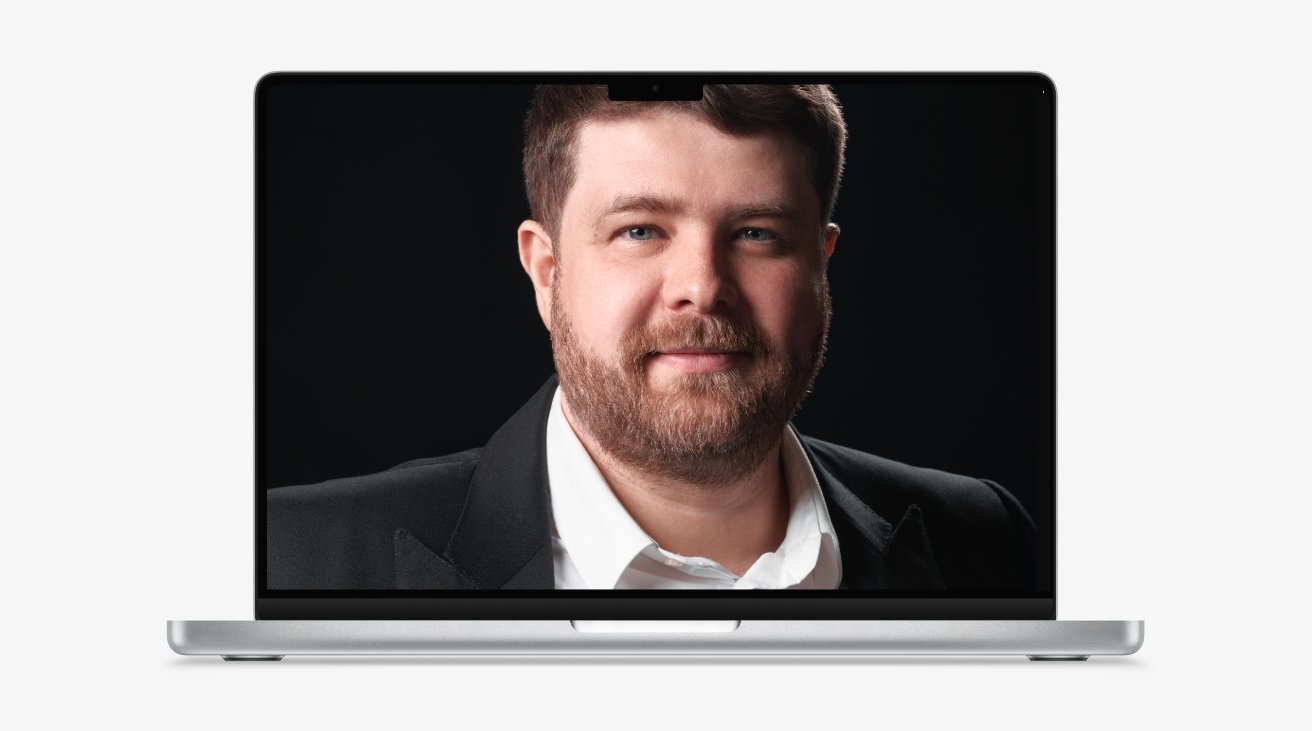




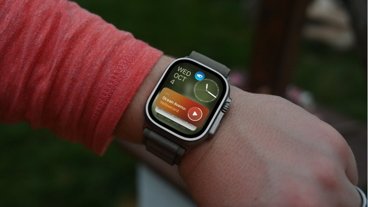


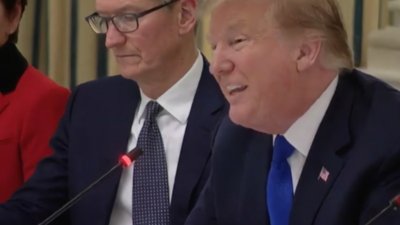
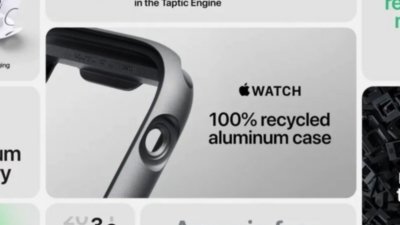
 Malcolm Owen
Malcolm Owen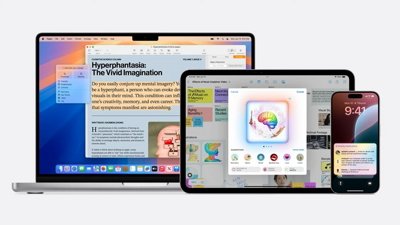
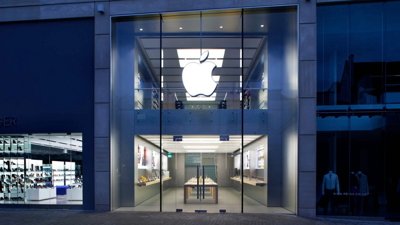

 Andrew O'Hara
Andrew O'Hara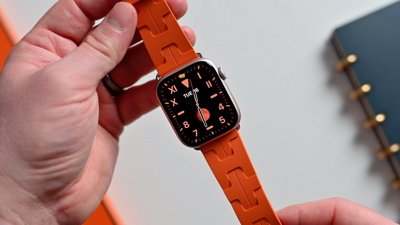
 Andrew Orr
Andrew Orr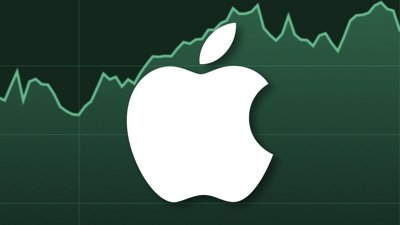



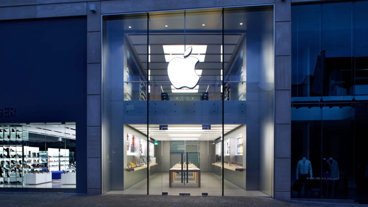
-m.jpg)






1 Comment
Fantastic that you lined up this interview, I’m a big fan of the MacPaw team, but I can’t believe you didn’t ask the big question of what it is like leading a development team in the middle of a war zone. A disappointing missed opportunity, for an in-depth interview!